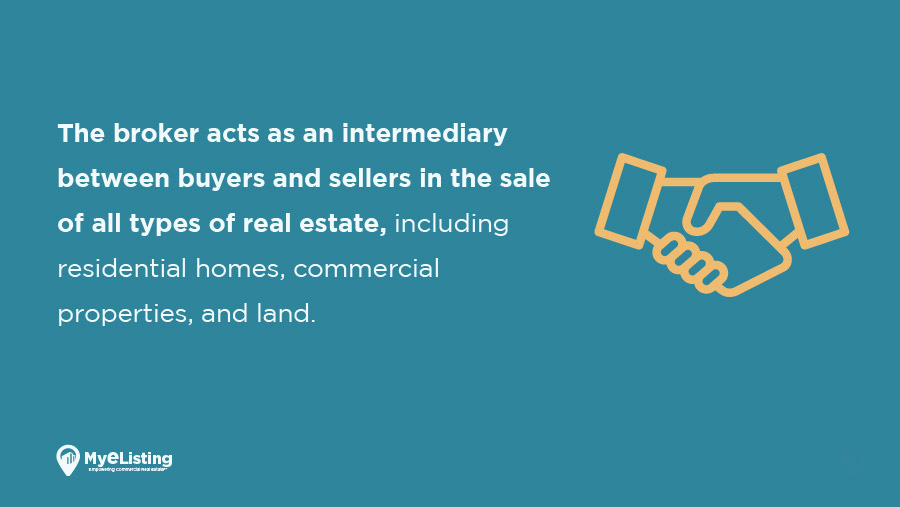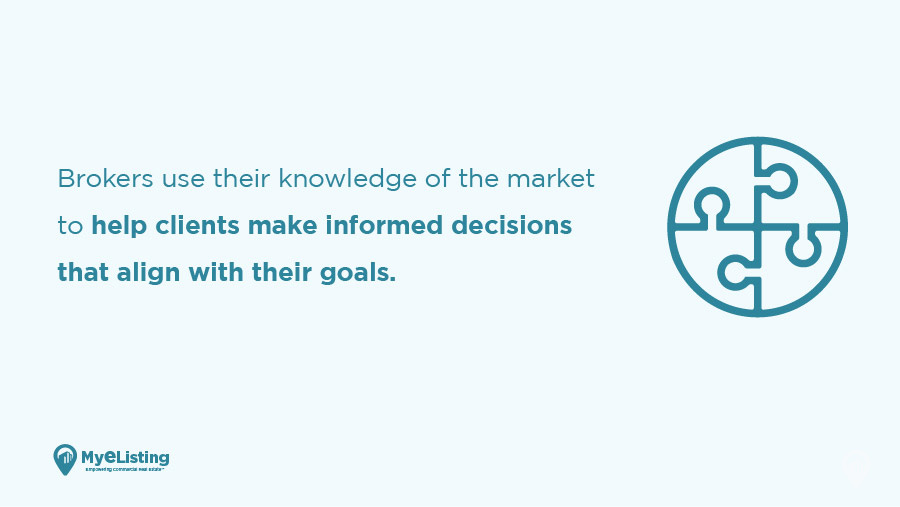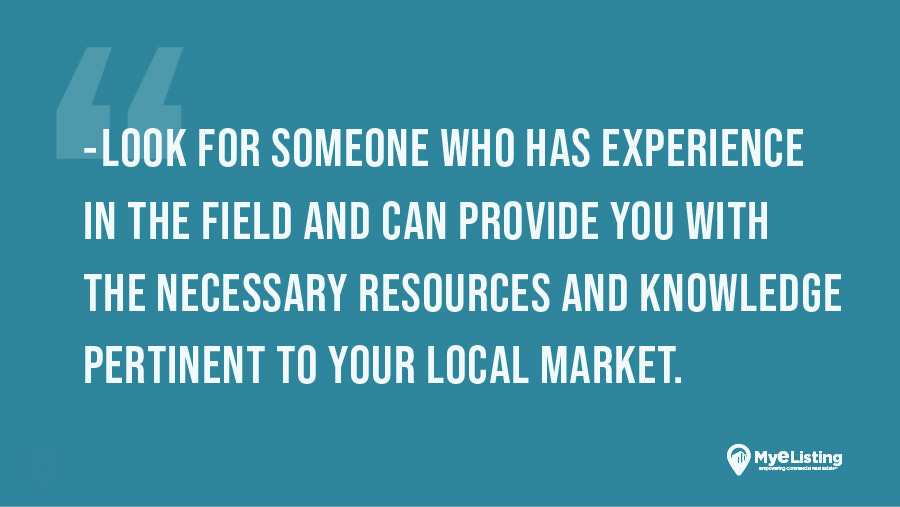Step-by-Step Guide to Finding & Working With a CRE Broker

Specializes in providing actionable insights into the commercial real estate space for investors, brokers, lessors, and lessees. He covers quarterly market data reports, investment strategies, how-to guides, and top-down perspectives on market movements.

The first step towards successful commercial real estate investing is educating yourself on the process. There are many factors to consider, such as location, size, budget, and type of property, and having an experienced CRE broker on your side can make all the difference.
Picking the right CRE broker is key to a successful investment journey. In this step-by-step guide, we'll provide you with tips for finding the right CRE broker, advice on how to evaluate potential brokers, and suggestions for setting up a successful working relationship with the broker of your choice.
What Is a Real Estate Broker?

A real estate broker is a professional who has taken advanced real estate courses, garnered more hours of experience, and passed the necessary examinations to qualify for a license. The broker acts as an intermediary between buyers and sellers in the sale of all types of real estate, including residential homes, commercial properties, and land.
A real estate broker is also responsible for managing the details of the contract between parties involved in a transaction. They may also provide advice on matters such as taxes, insurance, finance, and legal issues related to the purchase or sale of real estate.
A commercial real estate broker is someone who specializes in leasing, buying, and selling commercial real estate. They are licensed professionals who work with both buyers and sellers to facilitate the exchange of properties.
Commercial brokers must have an understanding of both local and global markets, as well as a thorough knowledge of the legal requirements for each transaction.
Tasks of a Commercial Real Estate Broker
In addition to helping clients purchase or lease a property, they also help tenants negotiate leases, determine rental rates, and handle the paperwork associated with closing on a deal.
Becoming a commercial real estate broker requires extensive training and experience in residential real estate as well as commercial considerations such as zoning regulations and tax laws.
Commercial brokers not only need to be highly knowledgeable about their industry but also possess excellent people skills in order to effectively represent their client's interests.
What Does a CRE Estate Broker Do?

Brokers work with real estate professionals to negotiate deals and facilitate transactions. They use their knowledge of the market to help clients make informed decisions that align with their goals.
A broker may also provide guidance to new agents by helping them understand the nuances of the industry and the process of researching and evaluating commercial properties. They serve as a liaison between buyers and sellers, negotiating terms of sale or lease on behalf of their clients.
Brokerage services are often used for larger transactions such as office buildings, retail centers, warehouses, industrial parks, and more.
Finding the Right Broker for Your CRE Needs
Different types of CRE brokers specialize in specific aspects of real estate transactions. Some common types of brokers include the following.
Brokers Who Work for Landlords
CRE brokers who work for landlords are called listing reps and are experienced professionals with extensive knowledge of the commercial real estate market. They help landlords create profitable leases by finding tenants and negotiating lease terms.
Brokers typically manage the entire leasing process from start to finish, including helping landlords decide on a rental rate, any tenant improvement allowances, and other terms that maximize their return on investment.
They also represent landlords in all negotiations with another broker or a tenant. CRE brokers can help landlords create a leasing package that is designed to attract quality tenants while ensuring the landlord's investment is secure and profitable.
Brokers Who Work for Tenants
CRE brokers who work for tenants are called tenant reps and are experienced in negotiating the best terms for their clients, as well as helping them with the process of finding a suitable property. They play an important role in leasing commercial real estate and can help save tenants time and money.
These brokers will typically work with both the tenant and another broker that represents the landlord to ensure a successful negotiation. They have the necessary knowledge to assist tenants in understanding all financial, legal, and practical details of a lease agreement.
They will advise their clients on issues such as rent, security deposits, covenants, termination clauses, and more. CRE brokers who work for tenants provide invaluable assistance by taking away some of the stress associated with searching for property and negotiating a lease agreement.
Dual Agents
CRE brokers who are dual agents work with both the buyer and the seller of a commercial real estate property. They are responsible for negotiating deals, providing advice and guidance, and helping both parties to understand the terms of the contract.
Dual agents must remain impartial throughout the process, representing both parties fairly and ethically.
How to Find a Commercial Real Estate Broker

When you start looking for a CRE real estate broker to help you with your commercial real estate needs, look for someone who has experience in the field and can provide you with the necessary resources and knowledge pertinent to your local market.
A good place to start is by researching brokerage firms in your area and getting referrals from other professionals or contacts you know who have worked with a particular broker. After selecting a few potential brokers, contact them for an initial meeting where you can discuss more about their services and fees.
You should ask questions about the broker's experience, expertise, pricing structure, and services offered. It is also important to select a broker who has access to the most up-to-date market intelligence and technology tools needed for successful transactions. This includes access to market analysis, real-time data, trends, and financial advice.
By doing your research ahead of time, you can minimize risk and maximize your chances of success. Be patient, stay diligent, and happy investing.
Find & Connect With Commercial Real Estate Agents & Brokers Near You for Free on MyEListing.com!
You can find & connect with commercial real estate agents & brokers near you for free right here on MyEListing.com.
Simply sign up for a free account and get unlimited access to accurate local market intelligence, customized property type alerts, comp software, and more.
Article Search
Share
All Article Categories








